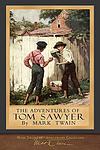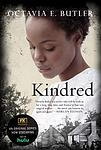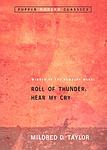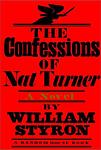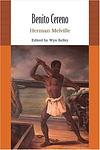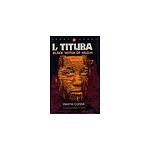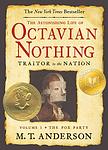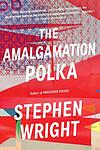The Greatest "Fiction, Slavery" Books of All Time
Click to learn how this list is calculated.
This list represents a comprehensive and trusted collection of the greatest books. Developed through a specialized algorithm, it brings together 288 'best of' book lists to form a definitive guide to the world's most acclaimed books. For those interested in how these books are chosen, additional details can be found on the rankings page.
Genres
The category of "Slavery" in books encompasses works that explore the historical and contemporary experiences of enslaved individuals and their descendants. These books may delve into the economic, social, and political systems that enabled slavery, as well as the cultural and psychological impacts of enslavement on individuals and communities. They may also examine the ongoing legacies of slavery, including systemic racism, inequality, and social injustice. Through a variety of genres, including memoirs, historical fiction, and academic texts, the category of "Slavery" seeks to shed light on this dark chapter of human history and its enduring effects.
Countries
Date Range
Reading Statistics
Click the button below to see how many of these books you've read!
Download
If you're interested in downloading this list as a CSV file for use in a spreadsheet application, you can easily do so by clicking the button below. Please note that to ensure a manageable file size and faster download, the CSV will include details for only the first 500 books.
Download-
1. Adventures of Huckleberry Finn by Mark Twain
The novel follows the journey of a young boy named Huckleberry Finn and a runaway slave named Jim as they travel down the Mississippi River on a raft. Set in the American South before the Civil War, the story explores themes of friendship, freedom, and the hypocrisy of society. Through various adventures and encounters with a host of colorful characters, Huck grapples with his personal values, often clashing with the societal norms of the time.
-
2. Beloved by Toni Morrison
This novel tells the story of a former African-American slave woman who, after escaping to Ohio, is haunted by the ghost of her deceased daughter. The protagonist is forced to confront her repressed memories and the horrific realities of her past, including the desperate act she committed to protect her children from a life of slavery. The narrative is a poignant exploration of the physical, emotional, and psychological scars inflicted by the institution of slavery, and the struggle for identity and self-acceptance in its aftermath.
-
3. Gone With the Wind by Margaret Mitchell
Set against the backdrop of the American Civil War and Reconstruction era, this novel follows the life of a young Southern belle, who is known for her beauty and charm. Her life takes a turn when she is forced to make drastic changes to survive the war and its aftermath. The story revolves around her struggle to maintain her family's plantation and her complicated love life, especially her unrequited love for a married man, and her tumultuous relationship with a roguish blockade runner.
-
4. Uncle Tom's Cabin by Harriet Beecher Stowe
This renowned novel provides a harsh critique of American slavery through the story of Uncle Tom, a long-suffering black slave. The narrative follows Tom as he is sold and transported to the harsh South, encountering a variety of characters, both kind and cruel. The novel powerfully explores themes of faith, the immorality of slavery, and the concept of humanity, ultimately contributing to the abolitionist cause and leaving a significant impact on the American perception of slavery.
-
5. The Adventures of Tom Sawyer by Mark Twain
The book chronicles the mischievous adventures of a young boy living on the Mississippi River in the mid-19th century. The protagonist, a clever and imaginative boy, often finds himself in trouble for his pranks and daydreams. His escapades range from his romance with a young girl, his search for buried treasure, his attendance at his own funeral, and his witnessing of a murder. The narrative captures the essence of childhood and the societal rules of the time.
-
6. Kindred by Octavia E. Butler
"Kindred" is a gripping and thought-provoking novel that follows the life of Dana, a young African American woman living in the 1970s. Suddenly, she finds herself inexplicably transported back in time to the early 19th century, where she becomes entangled in the lives of her ancestors, who are enslaved on a plantation. As Dana navigates the brutal realities of slavery, she grapples with her own identity, the complexities of race, and the enduring legacy of the past. With its powerful storytelling and exploration of the connections between past and present, "Kindred" is a profound examination of history, race, and the enduring resilience of the human spirit.
-
7. Roots by Alex Haley
This groundbreaking historical novel follows several generations of an African American family, beginning with Kunta Kinte, a man captured in Gambia in the 18th century and sold into slavery in the United States. Through Kinte and his descendants, the narrative explores the brutal realities of slavery and its aftermath, the struggle for freedom and civil rights, and the perseverance of a family through immense hardship. The story is based on the author's own family history, making it a significant work in the exploration of African American heritage and identity.
-
8. Roll of Thunder, Hear My Cry by Mildred D. Taylor
Set in Mississippi during the Great Depression, this novel follows the life of a young African American girl and her family who are struggling to maintain their integrity, pride, and independence in the face of racism and social injustice. The family owns a piece of land which provides them some protection from the harsh realities of racial discrimination. The story is a poignant exploration of how they navigate through a prejudiced society, face social and economic challenges, and fight to keep their land.
-
9. The Known World by Edward P. Jones
"The Known World" is a historical novel set in antebellum Virginia, exploring the complex relationships between slaves, free blacks, and whites. The story revolves around a black man who becomes a slave owner, his wife, and their slaves. It provides a unique perspective on the moral complexities and personal consequences of slavery, while also examining the intricate social hierarchy of the time. The narrative is filled with richly drawn characters, each with their own stories and struggles, offering a vivid portrayal of a little-known aspect of American history.
-
10. The Confessions of Nat Turner by William Styron
"The Confessions of Nat Turner" is a fictionalized account of a historical event, the 1831 Virginia slave uprising led by Nat Turner. The book is presented as a first-person narrative from Turner's perspective, exploring his life as a slave, his religious visions, and the violent rebellion he led against white slaveholders. The novel delves into the complexities of slavery, morality, and rebellion, while also examining the psychological trauma inflicted by the institution of slavery.
-
11. Homegoing by Yaa Gyasi
This epic novel traces the lineage of two half-sisters from 18th century Ghana to present day America. One sister is sold into slavery and shipped to America, while the other is married off to a British slaver and remains in Africa. The book follows their descendants through the generations, exploring the lasting impact of slavery and colonialism on Black lives. The narrative showcases the struggles, resilience, and triumphs of each generation, providing a deep and personal view into the historical events and societal changes that shaped their lives.
-
12. Benito Cereno by Herman Melville
"Benito Cereno" is a novella that tells the story of an American sea captain, Amasa Delano, who comes across a ship in distress off the coast of Chile. The ship, led by Captain Benito Cereno, appears to be in a state of disarray, with a mixed crew of Spanish sailors and African slaves. Throughout the story, Delano is kept in the dark about the true state of affairs on the ship, and it's only at the very end that he discovers a shocking truth - the slaves have revolted and are in control, with Cereno their captive. The novella is a tense exploration of power dynamics, race, and the nature of freedom.
-
13. I, Tituba, Black Witch of Salem by Maryse Condé
This novel is a fictionalized account of the life of Tituba, a woman of African descent who was enslaved and brought to America in the 17th century. Accused of witchcraft during the Salem Witch Trials, Tituba's story is one of survival and resilience as she navigates the brutal realities of slavery, racial prejudice, and mass hysteria. The narrative explores themes of gender, race, and power while offering a unique perspective on a notorious period in American history.
-
14. A Mercy by Toni Morrison
"A Mercy" by Toni Morrison is a historical fiction novel set in the late 17th century in America. The story follows a young slave girl named Florens who is sold by her mother to a Dutch trader in exchange for a debt. Florens is then taken to a plantation in Virginia where she becomes part of a diverse group of women, including a Native American, a white indentured servant, and the plantation owner's wife. The novel explores themes of race, gender, and power dynamics as the women navigate their relationships with each other and the harsh realities of life in colonial America.
-
15. Texaco by Patrick Chamoiseau
The novel is an epic narrative that weaves together the history of Martinique from the time of slavery to the post-colonial era through the eyes of a resilient woman named Marie-Sophie Laborieux. The story unfolds as she recounts her life and the lives of her ancestors to a visiting urban planner, revealing the transformation of her homeland and the struggles of its people. The book blends Creole and French language, magical realism, and rich storytelling to paint a vivid picture of the island's cultural tapestry, the legacy of colonialism, and the enduring spirit of its inhabitants.
-
16. Indigo by Beverly Jenkins
"Indigo" is a historical romance novel that takes place in the 19th century and centers around Hester Wyatt, a former slave who has found freedom in Michigan and is now a dedicated member of the Underground Railroad. Her life takes an unexpected turn when she shelters a wounded fugitive named Galen Vachon, a notorious Black Daniel who is also a conductor on the Railroad. As Hester nurses him back to health, a deep bond forms between them, blossoming into a passionate romance. Despite the dangers that surround them, including the threat of capture and the challenges posed by a racially divided society, Hester and Galen's love for each other and their commitment to the cause of freedom endure, showcasing the resilience of the human spirit and the power of love to overcome adversity.
-
17. Property by Valerie Martin
"Property" by Valerie Martin is a thought-provoking novel set in the 19th century American South, where the institution of slavery is deeply ingrained. The story follows the complex relationship between Manon, a white plantation mistress, and Sarah, her mulatto slave. Through their contrasting perspectives, the book explores themes of power, race, and identity, shedding light on the harsh realities of slavery and the inherent cruelty of human ownership.
-
18. The Good Lord Bird: A Novel by James McBride
The novel is a fictional account of the life of notorious abolitionist John Brown, told from the perspective of a young, freed slave named Henry Shackleford. Disguised as a girl for his own safety, Henry becomes a member of Brown's motley family of abolitionist soldiers, and finds himself in the historic 1859 raid on the U.S. Armory at Harpers Ferry. The book blends historical facts with imaginative storytelling, providing a humorous yet poignant exploration of race, religion, and identity in America.
-
19. The Astonishing Life of Octavian Nothing, Traitor to the Nation, Vol I and II by M.T. Anderson
The book follows the life of Octavian, a young African American boy raised in a strange and secretive environment in Revolutionary-era Boston. He is brought up as part of a philosophical experiment by a group of rationalist scholars who seek to determine the intellectual capacity of Africans. As he matures, Octavian realizes the true nature of the experiment and the oppressive reality of his existence. His journey of self-discovery leads him to question the very foundations of the society that treats him as an object of study rather than a human being. As the American Revolution unfolds around him, Octavian is drawn into the chaotic struggle for independence, identity, and survival, challenging the notions of freedom and what it means to be a traitor to a nation built on the paradox of liberty and slavery.
-
20. Empire Of Cotton: A Global History by Sven Beckert
"Empire of Cotton" by Sven Beckert is a comprehensive global history of cotton, exploring its impact on the world economy, politics, and society from the 18th century to the present day. Beckert argues that cotton played a crucial role in the development of capitalism, colonialism, and imperialism, and that its production and trade were intimately linked to the exploitation of labor, the growth of slavery, and the rise of industrialization. The book offers a fascinating and thought-provoking perspective on the complex and often violent history of cotton and its enduring legacy in the modern world.
-
21. The Amalgamation Polka by Wright, Stephen
The novel is a vivid and surreal exploration of the American experience during the Civil War era, following the life of Liberty Fish, a young man born to abolitionist parents. As Liberty comes of age, he is drawn into the tumultuous events of his time, embarking on a journey that takes him from his upstate New York home to the deep South, where he confronts the brutal realities of slavery and war. The narrative weaves a tapestry of history and fantasy, examining themes of identity, heritage, and the inescapable nature of violence in the shaping of American culture.
-
22. Grant by Ron Chernow
"Grant" is a comprehensive biography of the 18th President of the United States, Ulysses S. Grant. Written by Pulitzer Prize-winning author Ron Chernow, the book explores Grant's early life, military career, presidency, and post-presidential years. Chernow portrays Grant as a complex and often misunderstood figure, highlighting his military genius and leadership during the Civil War, as well as his struggles with alcoholism and financial ruin later in life. The book also delves into Grant's relationships with his wife, Julia, and political figures such as Abraham Lincoln and William Tecumseh Sherman. Overall, "Grant" offers a detailed and nuanced portrait of one of America's most significant historical figures.
-
23. Crossing The River by Caryl Phillips
"Crossing The River" is a poignant and thought-provoking novel that explores the lives of African diaspora through multiple generations and continents. Through a series of interconnected stories, the book delves into themes of slavery, identity, and the search for belonging. From the harrowing journey of an enslaved African woman to the struggles of her descendants in the present day, the novel offers a powerful examination of the enduring impact of history and the complexities of human connections.
-
24. Washington Black by Esi Edugyan
"Washington Black" is a historical novel by Esi Edugyan that tells the story of a young slave named George Washington Black, who is forced to flee a plantation in Barbados with the help of his master's brother. The two embark on a journey that takes them across the globe, from the Caribbean to the Arctic, and Washington Black discovers his talent for scientific illustration. Along the way, he faces challenges and struggles with his identity as a black man in a world dominated by white men. The novel explores themes of freedom, identity, and the impact of colonialism on individuals and societies.
-
25. On Juneteenth by Annette Gordon-Reed
"On Juneteenth" is a memoir by Pulitzer Prize-winning author Annette Gordon-Reed that explores the history and significance of Juneteenth, the holiday commemorating the end of slavery in the United States. Gordon-Reed reflects on her own experiences growing up in Texas and the ways in which Juneteenth has been celebrated and politicized over time. She also delves into the complex legacy of slavery and racism in America, offering a powerful and thought-provoking exploration of this important holiday and its ongoing relevance.
Reading Statistics
Click the button below to see how many of these books you've read!
Download
If you're interested in downloading this list as a CSV file for use in a spreadsheet application, you can easily do so by clicking the button below. Please note that to ensure a manageable file size and faster download, the CSV will include details for only the first 500 books.
Download



